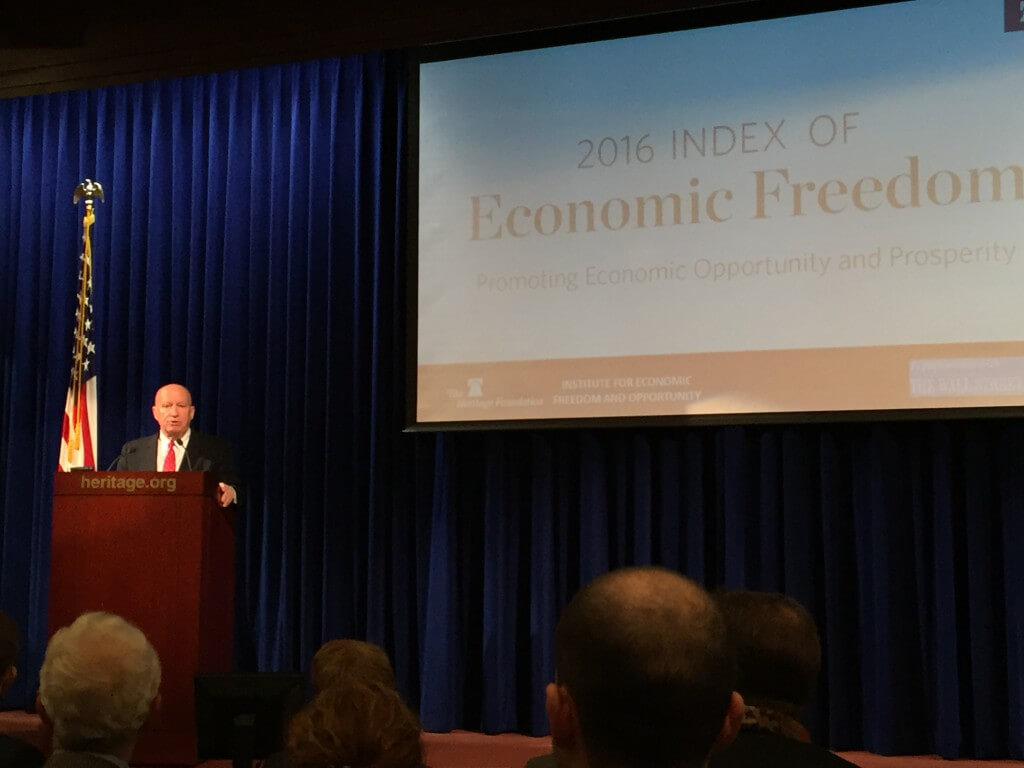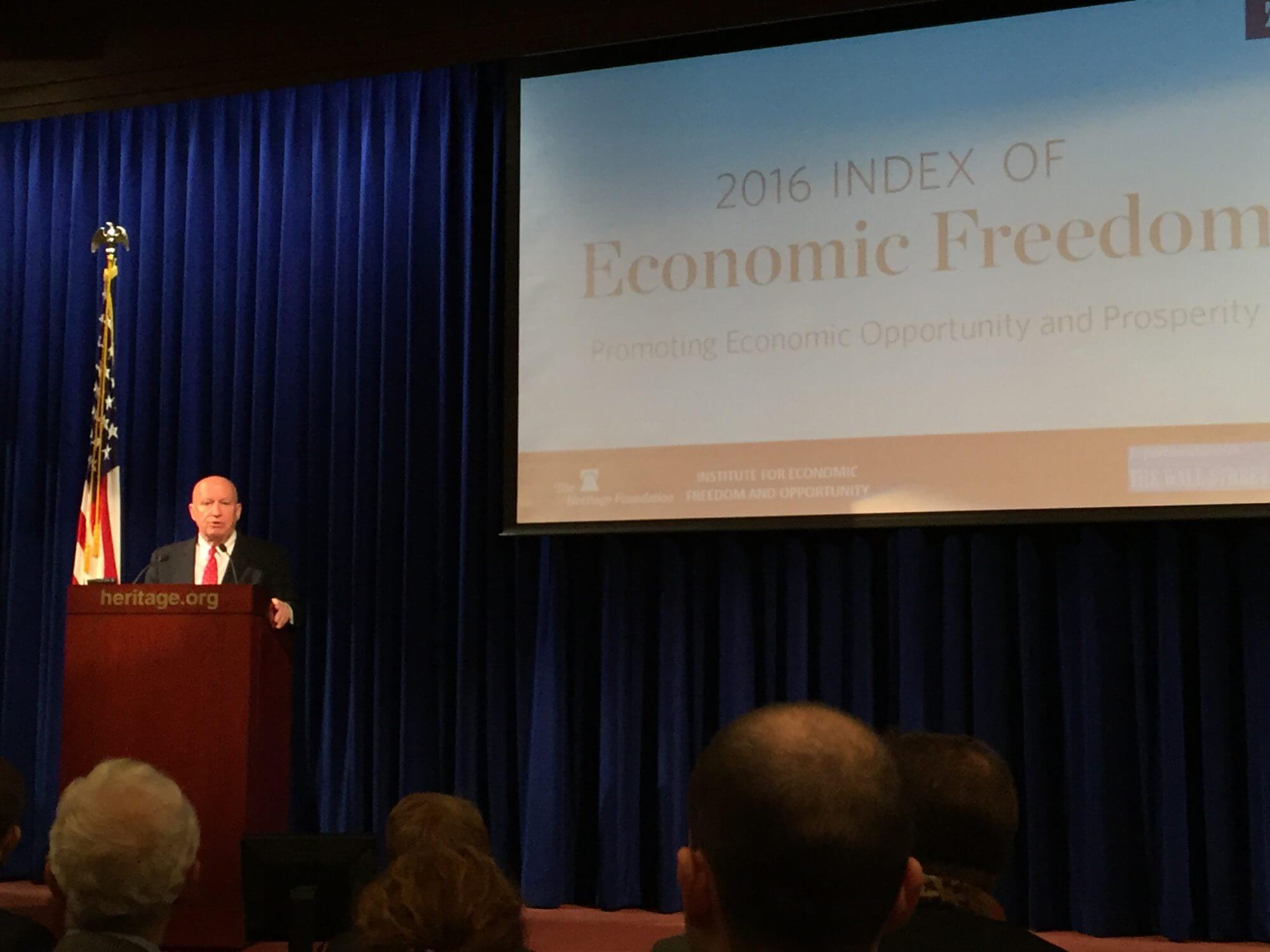
Nick Hagar/Medill News Service
WASHINGTON — Hong Kong is the most economically free country in the world again this year, while the United States places 11th, according to a think tank report.
The right-leaning Heritage Foundation publishes a yearly “Index of Economic Freedom” that scores countries on metrics such as open markets and size of government. This type of index is used to track the relationship between economic freedom and growth, which the Heritage Foundation says are highly correlated.
The 2016 index, released Monday in partnership with the Wall Street Journal, continues Hong Kong’s reign as the most free country, a spot it has held since the index began in 1995. The United States rose two spots from last year’s 13th-place ranking, but its overall score fell to an all-time low.
“Our economic freedom has been on a declining path over the past decade,” said Jim DeMint, president of the Heritage Foundation and former Republican senator from South Carolina. “As a result, we’re performing far below our potential.”
Representative Kevin Brady, R-Texas, called for the U.S. to increase its economic freedom to remain competitive with the rest of the world.
“I think it’s embarrassing,” Brady said. “’We’re number 11’ isn’t the motto of this great nation.”
The report cites increased government spending and regulation, especially related to healthcare, for the United States’ low score. It also points to high corporate taxes and economic performance, saying the U.S. economy “continues to underperform despite a private sector-led energy boom.”
The 2016 report states that the world has become marginally more economically free since the last index. Increases in freedom bring increased per capita income, along with better healthcare and education, the report says.
“As economic freedom has gone up, we’ve seen a huge increase in global gross domestic product,” said Terry Miller, fellow in economic freedom at the Heritage Foundation and former U.S. ambassador to the United Nations. “At the same time, we’ve cut the rate of poverty worldwide in a little over half.”
However, some have criticized the report for failing to show any relationship between growth and the metrics that the Heritage Foundation measures.
A 2005 report from the Left Business Observer found that the index can only account for 10 percent of growth and calls the correlation between freedom scores and growth “meaninglessly small.” In addition, the report’s methodology changed twice in 2007 and 2008, calling its rankings into question.
The index gives countries scores out of 100 in four categories: rule of law, size of government, regulatory efficiency and market openness. Out of the 178 countries measured, only five were classified as entirely “free,” including 2nd-place country Singapore; the U.S. is considered “mostly free.” North Korea rounds out the bottom of the list, under the heading “repressed.”
Hong Kong, although classified by the Chinese government as a special administrative region, is treated as a country for the Heritage Foundation’s index due to its economic autonomy.
Jack Spencer, vice president for the Heritage Foundation’s Institute for Economic Freedom and Opportunity, said world leaders use the index to attract foreign investment and fix priorities at home. And DeMint called the report the Heritage Foundation’s “flagship publication.”
“The index is a global benchmark of opportunity and prosperity for societies across the world,” DeMint said.


